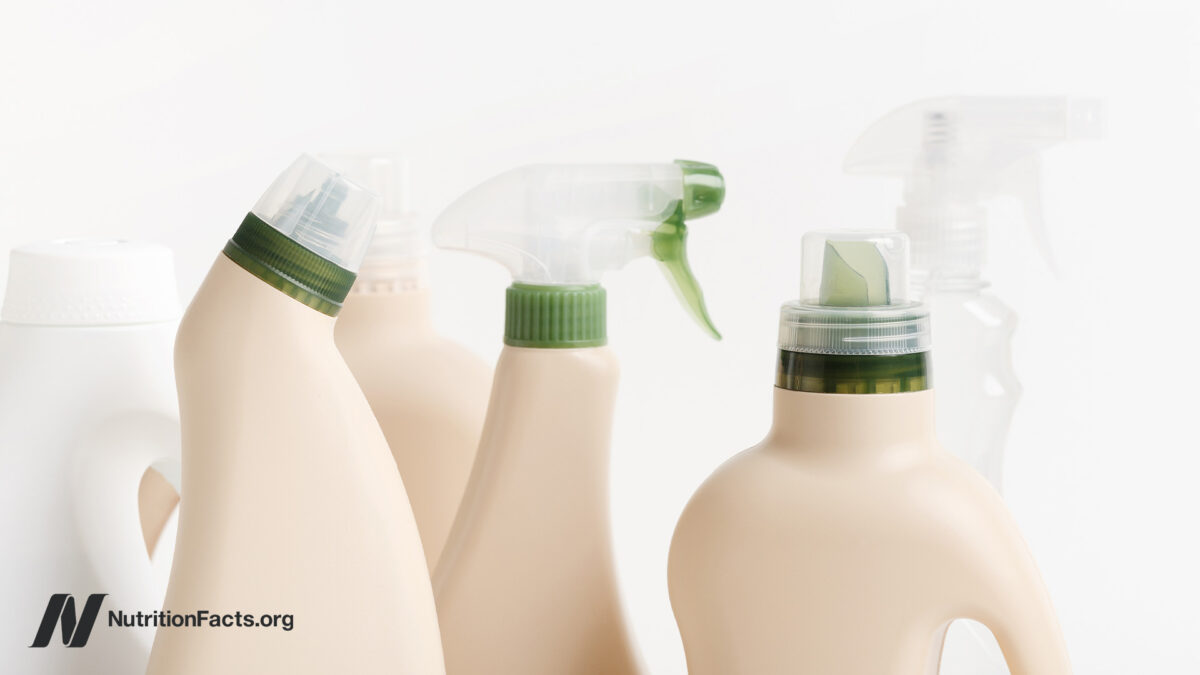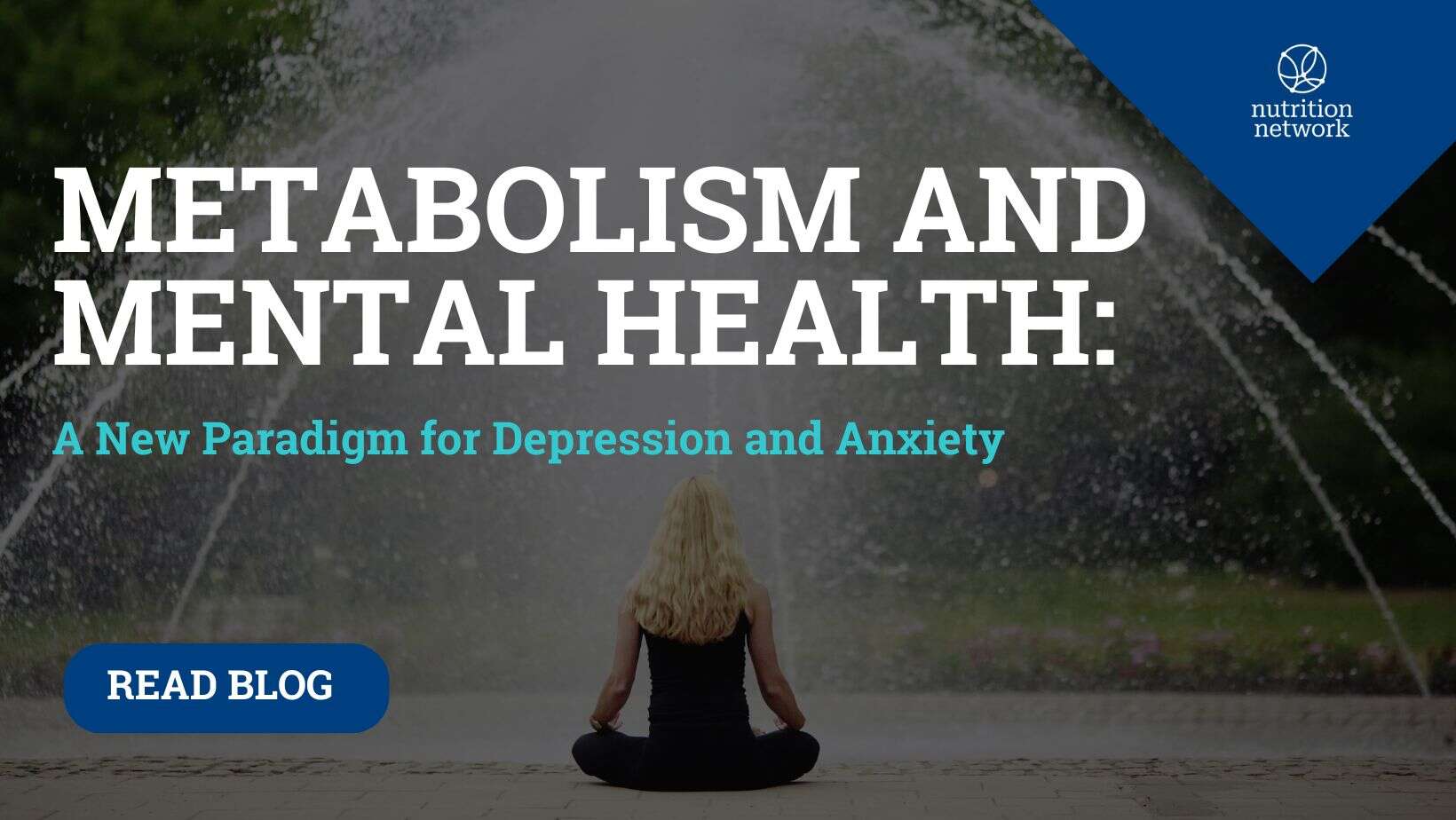There is a reason the U.S. Centers for Disease Control and Prevention prohibits not only smoking but also scented or fragranced products in its buildings.
In a recent review entitled “Damaging Effects of Household Cleaning Products on the Lungs,” researchers noted: “Adverse respiratory effects of cleaning products were first observed in populations experiencing high levels of exposure at the workplace, such as cleaners and health-care workers, with a primary focus on asthma.” Occupational use of disinfectants has also been linked to a higher risk of developing chronic obstructive pulmonary disease, such as emphysema.
As I discuss in my video Friday Favorites: The Effects of Cleaning Products and Air Fresheners on Lung Function, we now know that, in addition to workplace exposures, “exposure to household cleaning products has also emerged as a risk factor for respiratory disorders in childhood,” as well potentially being “an important risk factor for adult asthma.” Common household cleaning spray use accounts for as many as one in seven adult asthma cases. The thought is that inhaling chemical irritants may cause injury to the airways, leading to oxidative stress and inflammation. What can we do about it?
Well, it may be limited to sprays. Researchers found that cleaning products that were not sprayed were not associated with asthma. It’s also possible that environmentally friendly cleaning products “may represent a safer alternative,” though they may still present some risk.
Ideally, safer cleaning products should be available. Unfortunately, the research suggesting harm has “seldom been heeded by manufacturers, vendors, and commercial cleaning companies.” I wonder how much of that is because “most of the workers exposed to cleaning products are women”—both occupationally and, perhaps, domestically.
One of the problems may be the fragrance chemicals. One in three Americans surveyed “reported health problems, such as migraine headaches and respiratory difficulties, when exposed to fragranced products.” And, for about half of them, the problems were so bad they actually lost work over it, either “workdays or a job due to fragranced product exposure in the workplace.”
“Results from this study reveal that over one-third of Americans suffer adverse health effects, such as respiratory difficulties and migraine headaches, from exposure to fragranced products. Of those individuals, half reported that the effects can be disabling. Yet over 99% of Americans are exposed to fragranced products at least once a week, from their own or others’ use.”
The effect on asthmatics may be even worse, affecting closer to two-thirds of Americans. One compound that may be of particular concern is called 1,4-dichlorobenzene, also known as para-dichlorobenzene, which is found in many air fresheners, toilet bowl deodorants, and mothballs. It breaks down in the body into a compound called 2,5-dichlorophenol, which we pee out, giving researchers a reliable measure of our dichlorobenzene exposure. Not only may it make respiratory problems worse for those already suffering from compromised airways, but exposure to dichlorobenzene “at [blood] levels found in the U.S. general population, may result in reduced pulmonary [lung] function” in people who start out with normal breathing. What’s worse, higher exposures “were associated with greater prevalence of CVD [cardiovascular disease] and all cancers combined,” another reason to avoid it. We’d better read labels, right?
Surprisingly, “no law in the US requires the disclosure of all ingredients in fragranced consumer products.” In fact, for laundry supplies, cleaning products, and air fresheners, manufacturers “do not need to list the presence of a ‘fragrance’ on either the label or MSDS,” the material safety data sheet. We won’t know until we smell it.
I support the U.S. Centers for Disease Control and Prevention’s ban. Not only is “the use of tobacco products (including cigarettes, cigars, pipes, smokeless tobacco, or other tobacco products)…prohibited at all times,” but “scented or fragranced products are prohibited at all times in all interior space owned, rented, or leased by CDC.” I wish rideshare services like Uber and Lyft would have a similar policy. I’d even be happy with just a fragrance-free option. About one in five of more than a thousand Americans surveyed said they “would enter a business but then leave as quickly as possible if they smelled air fresheners or some fragranced product,” so it’s in the best interest of businesses, too. “Over 50% of the population would prefer that workplaces, health care facilities and professionals, hotels, and airplanes were fragrance-free.”










